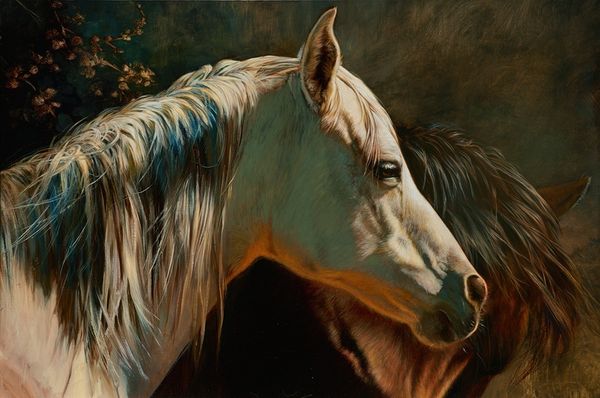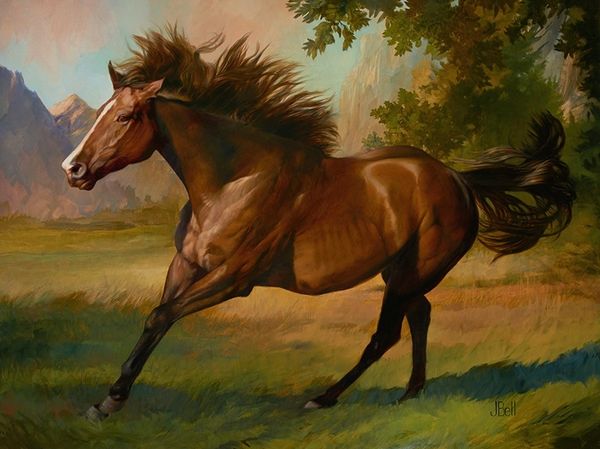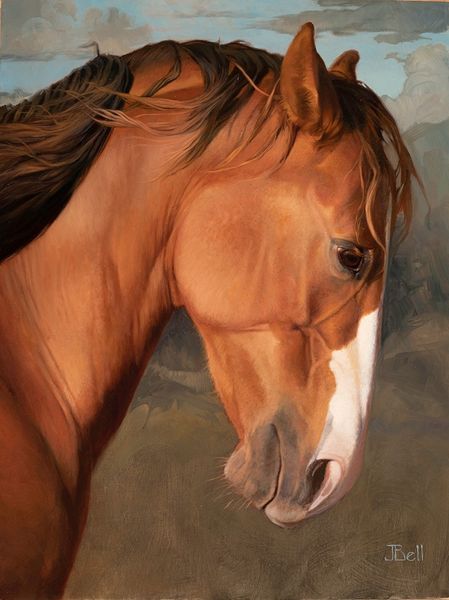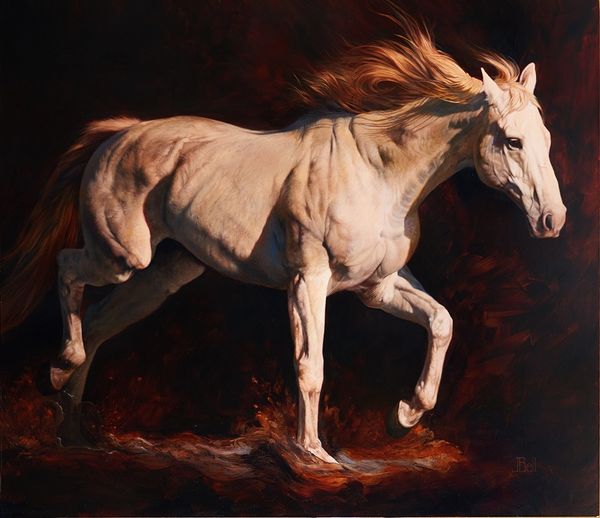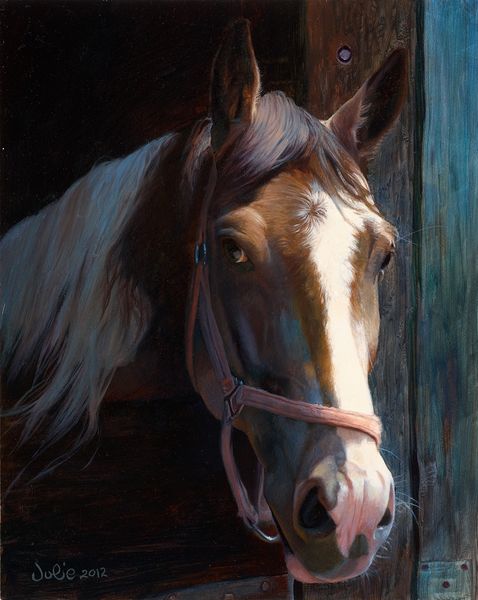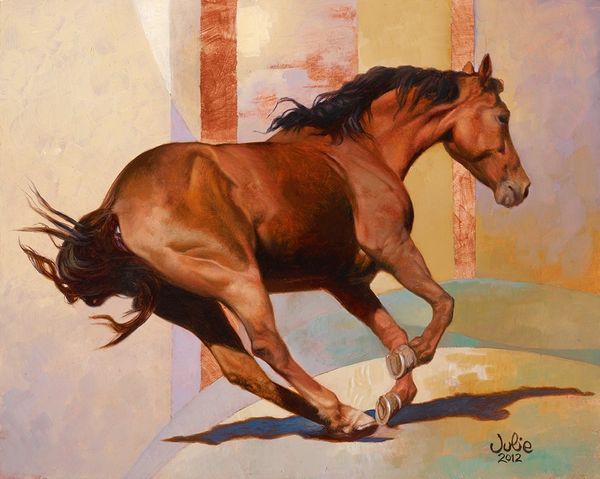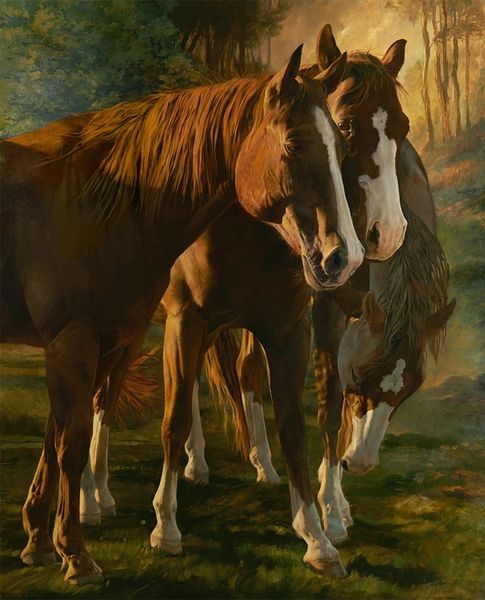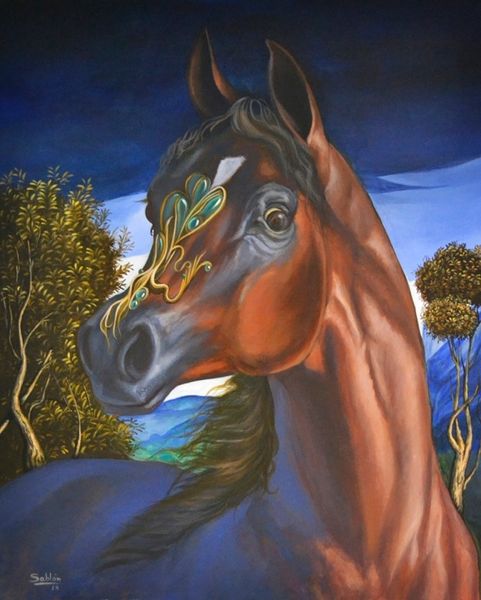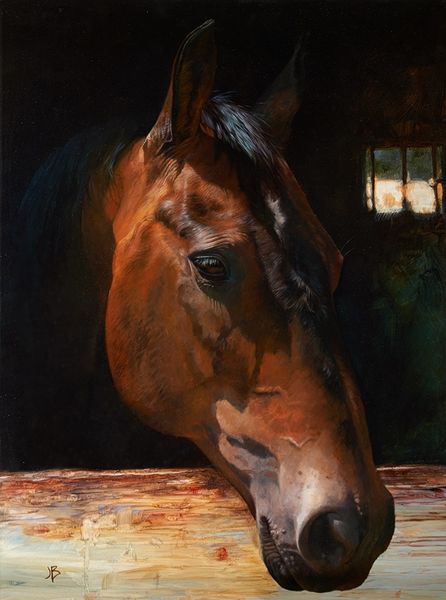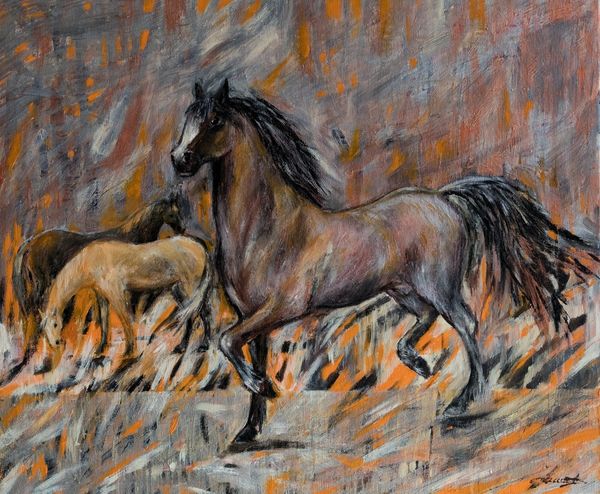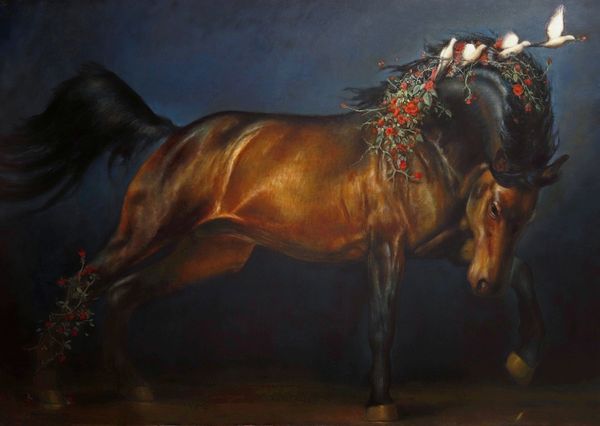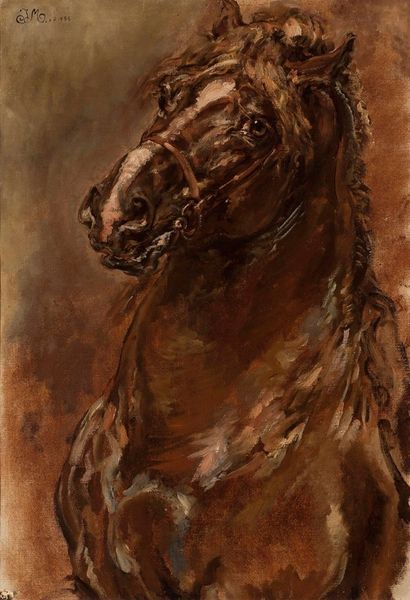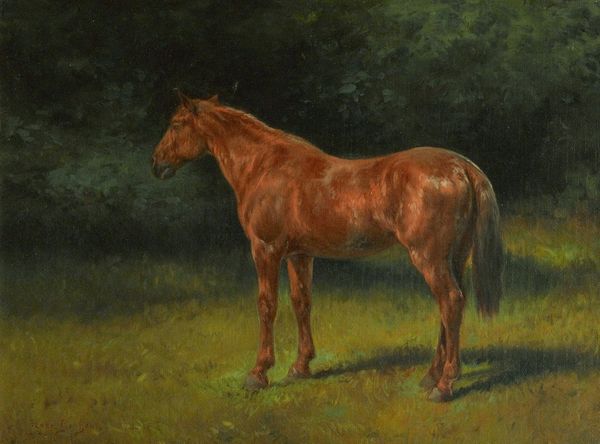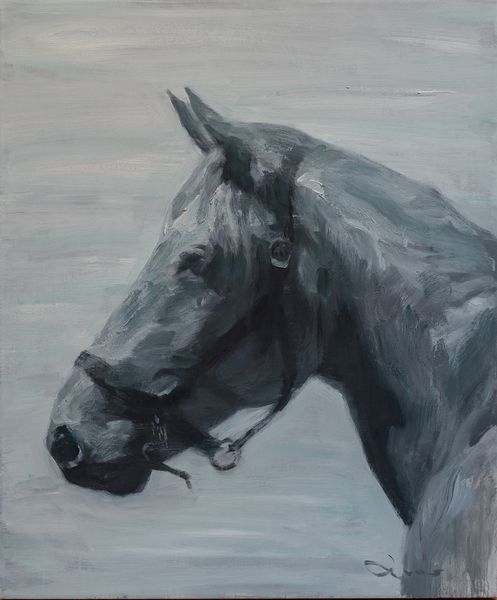
painting, oil-paint
#
portrait
#
animal
#
painting
#
oil-paint
#
landscape
#
oil painting
#
portrait head and shoulder
#
romanticism
#
realism
Copyright: Modern Artists: Artvee
Editor: So, this is *Lucky*, an oil painting by Julie Bell. The focus on the animal’s head and neck, in the midst of what seems like a pasture, feels very intimate. I’m curious—how do you see the interplay between the realism and what feels like idealized romanticism here? Curator: The painting speaks volumes about our cultural relationship with animals, particularly horses. The artist, Julie Bell, places 'Lucky' within a lineage of equestrian portraiture that served historically to glorify power and wealth, yet infuses it with a palpable sense of affection. Notice the strategic use of light. Editor: Yes, the strong contrast really highlights the animal’s form. Curator: Precisely! The light and shadow create a sense of depth and presence, almost elevating it to an heroic status. How does the context in which we encounter this work today shift its meaning compared to its historical predecessors? Editor: Well, without the obvious signs of wealth or power usually associated with horse portraits, I think it focuses the attention much more on the beauty and the dignity of the animal itself. It feels less about possession, and more about connection. Curator: I agree. This portrait challenges traditional equestrian art. In the absence of overt symbolic markers of status, the painting fosters a deeper contemplation on animal sentience and companionship, and thus on ethical relationship. Where do you think these images live; on magazine covers or gallery walls? Editor: I think seeing a piece like this would be interesting either way. I hadn’t really thought about how historical portraiture affects our modern understanding and appreciation of animals in art. Curator: It shows how representations are never neutral, and are always laden with the social values of their time. Considering this changes our understanding of the animal, but also of ourselves.
Comments
No comments
Be the first to comment and join the conversation on the ultimate creative platform.
